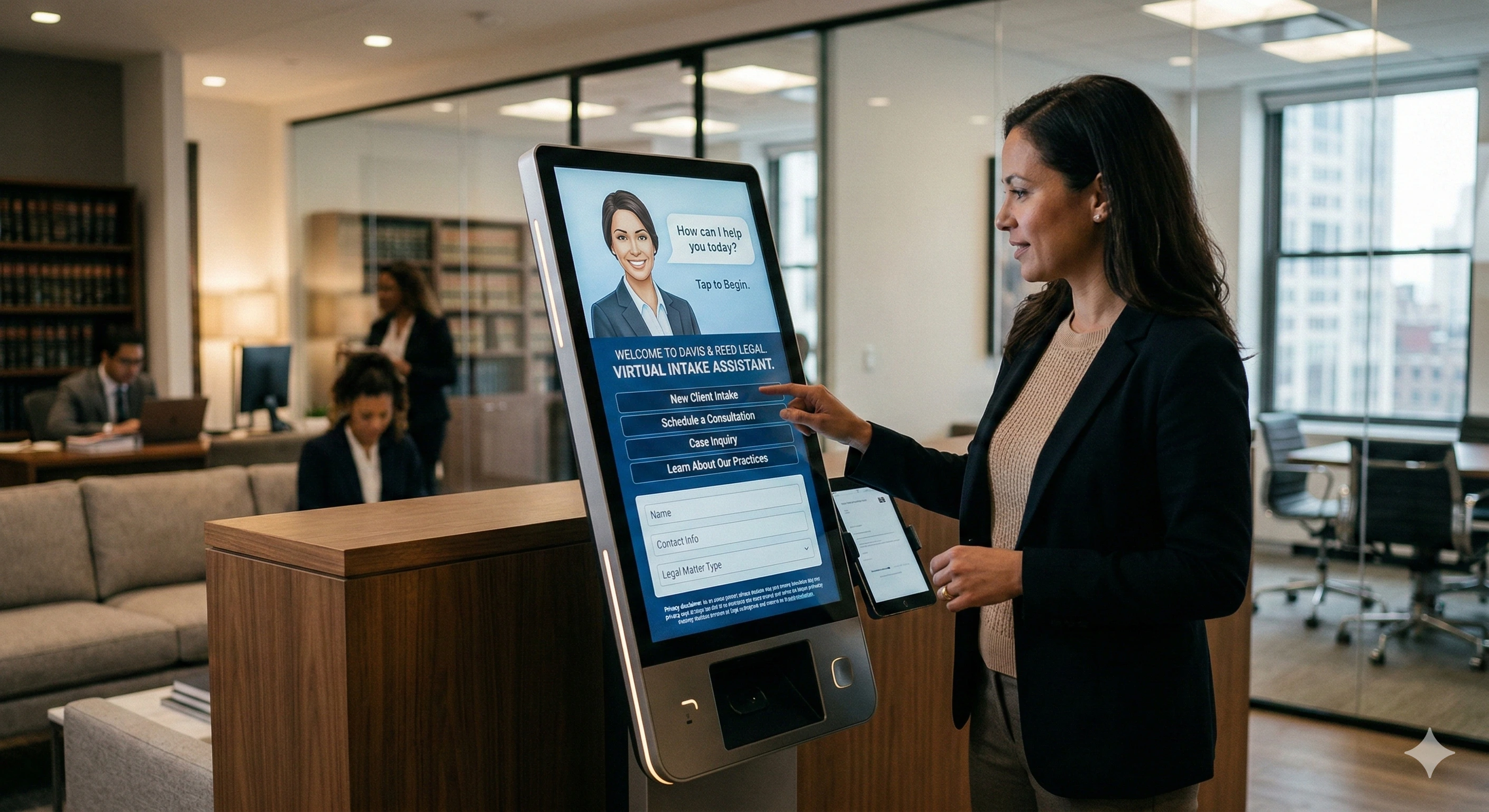What Is a Virtual Intake System for Law Firms?
A virtual intake system is a digital process used by law firms to collect, manage, and follow up with potential clients. It replaces manual tasks like phone screening, legal client intake forms, and appointment scheduling. Many firms use automation, while others hire trained remote staff to support intake needs.
For firms looking to save time and reduce manual data entry, services like Virtual Staffing’s virtual intake specialists can help handle calls, follow-ups, and lead management in a consistent and professional way.
Why Intake Customization Matters in Legal Practices
Different legal matters require different intake approaches. A personal injury firm may receive urgent, high-volume inquiries, while an immigration law office might need multilingual support and structured document collection. A single setup can't meet all practice area needs effectively.
Customizing your client intake process helps your firm collect relevant details, respond more appropriately, and provide a more efficient experience for prospective clients.
Legal Intake System Needs by Practice Area
Personal Injury
- Fast response times are important—delays over 5 minutes may reduce lead conversions.
- Use short, mobile-friendly forms that focus on accident details and injury information.
- Automate scheduling to reduce friction.
- Include fields for insurance information and medical treatment.
- Follow-ups via text message can improve response rates.
- A trained virtual intake team can help ensure timely follow-ups.
Family Law
- Intake needs to be empathetic and confidential.
- Flexible consultation scheduling allows clients time to share sensitive issues.
- Intake forms should guide clients in uploading legal documents.
- Include fields for timelines and financial details.
- Intake flows should accommodate child custody considerations.
- Human-centered intake support can improve the client experience.
Criminal Defense
- Many inquiries come in during evenings and weekends.
- Intake should support emergency contacts and jail-related intake fields.
- Record arrest details, court dates, and case numbers.
- Ensure confidentiality is maintained throughout.
- Intake systems with priority tagging can help manage urgent matters more efficiently.
Immigration
- Multilingual support is often needed.
- Forms should be clear and easy for non-native speakers to understand.
- Secure upload options are essential for documents related to immigration status.
- Intake should track deadlines and document history.
- A simplified and accessible process increases client engagement.
Corporate Legal Departments
- Clients expect a streamlined and professional intake experience.
- Automate routine scheduling and document submission.
- Forms should gather entity details and relevant business data.
- Include conflict checks and internal routing options.
- Intake systems should align with project tracking and compliance needs.
Estate Planning
- Collect family relationships and financial details carefully.
- Include upload options for wills, trusts, and records.
- Secure portals reduce communication back-and-forth.
- Automated reminders help maintain ongoing client relationships.
- Intake should support integration with financial planning tools when needed.
Real Estate Law
- Track transaction steps and key dates.
- Record property history, ownership, and legal details.
- Organize contract uploads and title documentation.
- Allow remote updates for mobile or onsite processes.
- Support coordination with title companies and lenders.
What Makes a Good Legal Intake System?
Effective intake systems usually include:
- Integration with case management tools
- Flexible, customizable workflows
- Options for both automation and human support
- Security features to protect sensitive information
- Reporting tools for tracking conversion and performance
Key Features to Look For
- Online forms that adjust to client responses (conditional logic)
- Software integrations for scheduling, CRM, and document sharing
- Secure document upload capabilities
- Automated reminders for appointments and follow-ups
- Intake templates tailored to different legal practice areas
These features help reduce repetitive tasks and keep the intake process consistent.
The Role of a Virtual Intake Specialist
A virtual intake specialist can support your team by:
- Responding to client inquiries
- Reviewing contact forms and qualifying leads
- Booking appointments
- Maintaining a consistent intake flow across all inquiries
These professionals can complement in-house staff by handling intake tasks remotely.
Benefits of Customizing Legal Intake
- Saves time on manual data collection
- Improves the accuracy of submitted information
- Makes the client experience more straightforward
- Supports consistent workflows
- Helps transition clients smoothly to the consultation stage
Improving the Client Journey
A refined intake system helps your firm:
- Respond quickly with accurate information
- Schedule consultations automatically
- Request only necessary documents
- Minimize errors in client onboarding
- Monitor progress through intake software
Combining intake software with trained remote staff can support a more reliable client experience.
Should You Work with a Virtual Intake Specialist?
Firms with high inquiry volume or limited in-house staff may benefit from having virtual intake support. Specialists can:
- Respond to inquiries during busy or off hours
- Assist in screening and qualifying leads
- Provide intake consistency without full-time staffing
Virtual Staffing offers professionals trained to handle legal intake across various practice areas.
How to Customize Your Intake Process
- Outline each step of your client intake journey
- Adjust forms and templates to suit specific legal areas
- Use intake software to cut down on repetitive tasks
- Test your process with mock submissions
- Refine based on real client feedback and system data
Common Intake Mistakes
- Using one-size-fits-all forms for different services
- Ignoring mobile users
- Relying solely on manual scheduling
- Requesting too much documentation upfront
- Not linking intake tools with your practice management platform
Why Your Firm Needs a Custom Intake System Today
Your intake process shapes the client experience from the first interaction. A well-designed system can help save time, improve internal communication, and support consistent lead follow-up.
If your firm is looking to improve intake without overhauling existing operations, Virtual Staffing offers trained virtual intake specialists familiar with different legal practice areas. They can assist where needed, providing flexible support based on your firm’s workflow.
Consider exploring how Virtual Staffing can fit into your intake process and help support a smoother client experience.
Frequently Asked Questions
What is a legal intake system?
A legal intake system collects and manages potential client data using forms, follow-ups, and scheduling tools.
What’s the difference between legal intake forms and contact forms?
Intake forms collect detailed legal info. Contact forms usually just gather names and contact details.
How do I know if my system needs customization?
If you're losing leads, spending too much time manually entering data, or getting incomplete submissions, it’s time to update.
Are virtual intake specialists the same as virtual receptionists?
No. Virtual intake specialists are trained in legal processes and can qualify leads, not just answer calls.
What tools improve the intake process?
Practice management software, intake software, and automated schedulers.
Can I automate appointment scheduling?
Yes. Most modern intake tools include this feature.
How do corporate legal departments benefit?
They save time, ensure compliance, and streamline intake with customized software integrations.





.webp)